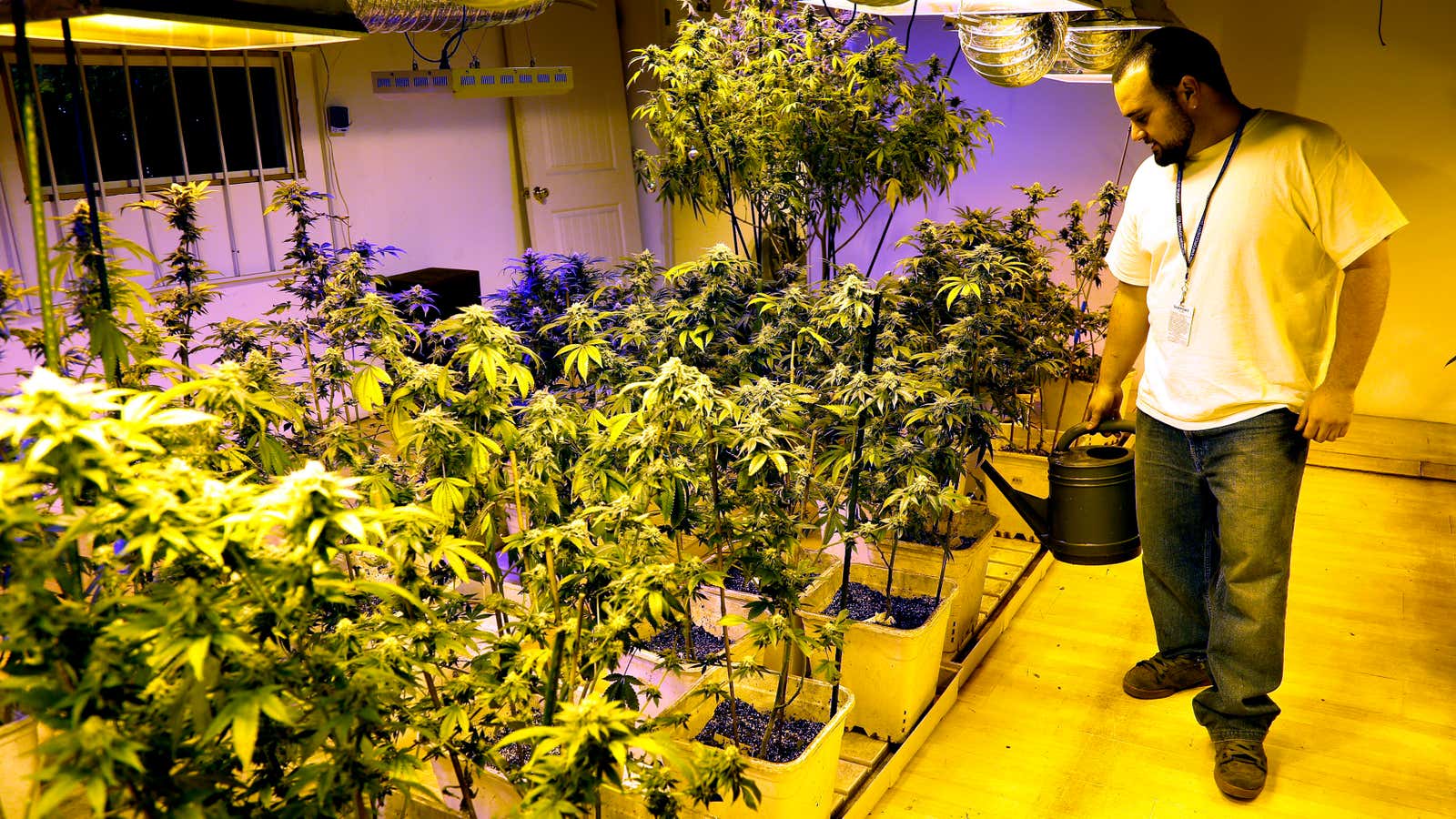In a recent comedy bit, the 47-year-old comedian Louis C.K. described (video) a rather traumatic pot-smoking experience with a group of 19-year-olds, remarking on how much more potent the drug was than he remembered from his own teenage years:
“I didn’t know that they’ve been working on this shit like it’s the cure for cancer,” he said. ”When I was a kid, you could just smoke a joint for a while. Now you take two hits, and you go insane.”
Louis CK is right: Marijuana nowadays is a whole lot stronger. According to the US Office of National Drug Control Policy, marijuana potency as measured by THC content has more than doubled since the 1990s (pdf).
And it may be actually driving people insane—or at least, marijuana’s potency may bring increased psychiatric risk, according to a new study published in The Lancet Psychiatry.
The study, conducted by researchers at Kings College in London, looked at marijuana usage in 410 patients in south London who had experienced a psychotic episode, as well as a control group of 370 from a similar population. They found that psychosis patients used high-potency marijuana at three times the rate of the control group, and that using potent pot every day indicated a much greater risk of psychosis than abstaining or using lower-grade marijuana.
Marijuana advocates have enjoyed a relaxation of policies of late, particularly in the US, where two states, Washington and Colorado, now have legal markets and many more have decriminalized the drug or made it available medically. But alongside these policy relaxations has come a demand for stronger stuff, resulting in the phenomenon that Louis C.K. remarked upon—what Robert MacCoun, a drug policy expert at UC Berkeley, calls a weed “arms race,” in which growers compete to produce the most potent pot.
The link between marijuana use and psychosis is well-documented. What’s unclear is the cause and effect: it might be that people prone to psychosis are more likely to use marijuana, rather than the pot actually causing the psychosis.
The same could be true in this study. It could be that psychotic people prefer powerful pot as a form of self-medication. (Quartz reached out to the researchers for comment on this aspect of the study and will update this if they reply.)
But the scientists point out in the paper that this would be surprising, because past research has shown that THC actually exacerbates psychosis symptoms in patients. For people already experiencing psychosis to “choose a type of cannabis that is high in THC,” the researchers write, “would be counterintuitive.”
